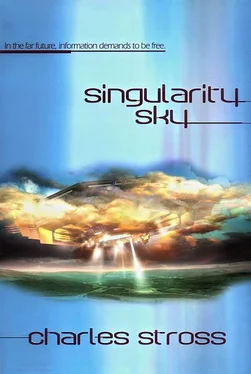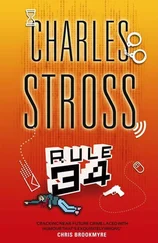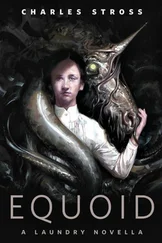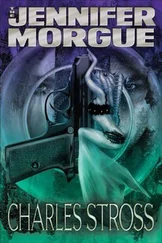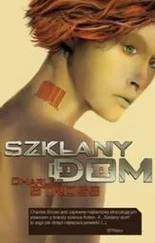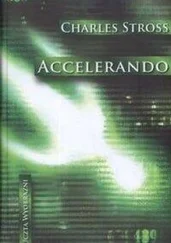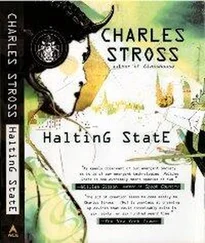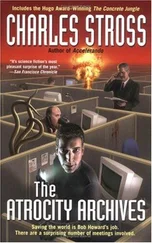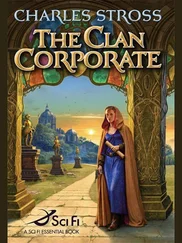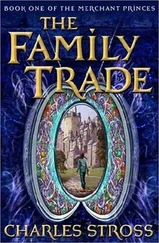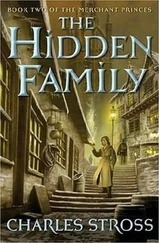Charles Stross - Singularity Sky
Здесь есть возможность читать онлайн «Charles Stross - Singularity Sky» весь текст электронной книги совершенно бесплатно (целиком полную версию без сокращений). В некоторых случаях можно слушать аудио, скачать через торрент в формате fb2 и присутствует краткое содержание. ISBN: , Жанр: Фантастика и фэнтези, на английском языке. Описание произведения, (предисловие) а так же отзывы посетителей доступны на портале библиотеки ЛибКат.
- Название:Singularity Sky
- Автор:
- Жанр:
- Год:неизвестен
- ISBN:9788495024121
- Рейтинг книги:5 / 5. Голосов: 1
-
Избранное:Добавить в избранное
- Отзывы:
-
Ваша оценка:
- 100
- 1
- 2
- 3
- 4
- 5
Singularity Sky: краткое содержание, описание и аннотация
Предлагаем к чтению аннотацию, описание, краткое содержание или предисловие (зависит от того, что написал сам автор книги «Singularity Sky»). Если вы не нашли необходимую информацию о книге — напишите в комментариях, мы постараемся отыскать её.
Singularity Sky
Singularity Sky — читать онлайн бесплатно полную книгу (весь текст) целиком
Ниже представлен текст книги, разбитый по страницам. Система сохранения места последней прочитанной страницы, позволяет с удобством читать онлайн бесплатно книгу «Singularity Sky», без необходимости каждый раз заново искать на чём Вы остановились. Поставьте закладку, и сможете в любой момент перейти на страницу, на которой закончили чтение.
Интервал:
Закладка:
“What do you mean?”
“The Festival isn’t human, it isn’t remotely human. You people are thinking in terms of people with people-type motivations; that’s wrong, and it’s been clear that it’s wrong from the start. You can no more declare war on the Festival than you can declare a war against sleep. It’s a self-replicating information network. Probe enters a system: probe builds a self-extending communications network and yanks the inhabited worlds of that system into it. Drains all the information it can get out of the target civilization, then spawns more probes. The probes carry some parasites, uploaded life-forms that build bodies and download into them whenever they reach a destination — but that’s not what it exists for.” Vassily gaped. “But it attacked us!”
“No it didn’t,” Martin replied patiently. “It isn’t intelligent; analyzing its behavior by adopting an intentional stance is a mistake. All it did was detect an inhabited planet with no telephone service at a range of some light-years and obey its instructions.”
“But the instructions — it’s war!”
“No, it’s a bug fix. It turns out that the Festival is just a — a telephone repairman. Like a robot repairman.
Only it doesn’t repair mere telephones — it repairs holes in the galactic information flow.” Martin glanced sideways at Rachel. She was wrestling with the autopilot, getting the landing burn sequence keyed in. It was a bad idea to distract her at a time like this; better keep the young nuisance occupied.
“Civilizations rise and fall from time to time; the Festival is probably a mechanism set in place a few millennia ago to keep them in touch, built by an interstellar culture back in the mists of time. When it detected a hole in the net it maintains, it decided to fix it, which is why it set up to do business in orbit around Rochard’s World, which is about as isolated and cut off as it’s possible to be.”
“But we didn’t ask for it,” Vassily said uncertainly.
“Well, of course not. Actually, I think it’s strayed outside its original maintenance zone, so every system it discovers in this sector warrants a repair job: but that’s not necessarily all there is to it. Part of the repair process is a rapid exchange of information with the rest of the network it connects to, a flow that runs in two directions. Over time, the Festival has become more than a mere repair service; it’s become a civilization in its own right, one that blooms like a desert flower — briefly flourishing in the right environment, then curling up into a seed and sleeping as it migrates across the deserted gulf light-years between oases. Telephone switches and routers are some of the most complicated information-processing systems ever invented — where do you think the Eschaton originally came from?
“When the Festival arrived at Rochard’s World, it had a 250-year communications deficit to make good.
That repair — the end of isolation, arrival of goods and ideas restricted by the New Republic — caused a limited local singularity, what in our business we call a consensus reality excursion; people went a little crazy, that’s all. A sudden overdose of change; immortality, bio-engineering, weakly superhuman AI arbeiters, nanotechnology, that sort of thing. It isn’t an attack.”
“But then — you’re telling me they brought unrestricted communications with them?” he asked.
“Yup.” Rachel looked up from her console. “We’ve been trying for years to tell your leaders, in the nicest possible way: information wants to be free. But they wouldn’t listen. For forty years we tried. Then along comes the Festival, which treats censorship as a malfunction and routes communications around it.
The Festival won’t take no for an answer because it doesn’t have an opinion on anything; it just is .”
“But information isn’t free. It can’t be. I mean, some things — if anyone could read anything they wanted, they might read things that would tend to deprave and corrupt them, wouldn’t they? People might give exactly the same consideration to blasphemous pornography that they pay to the Bible! They could plot against the state, or each other, without the police being able to listen in and stop them!” Martin sighed. “You’re still hooked on the state thing, aren’t you?” he said. “Can you take it from me, there are other ways of organizing your civilization?”
“Well—” Vassily blinked at him in mild confusion. “Are you telling me you let information circulate freely where you come from?”
“It’s not a matter of permitting it,” Rachel pointed out. “We had to admit that we couldn’t prevent it.
Trying to prevent it was worse than the disease itself.”
“But, but lunatics could brew up biological weapons in their kitchens, destroy cities! Anarchists would acquire the power to overthrow the state, and nobody would be able to tell who they were or where they belonged anymore. The most foul nonsense would be spread, and nobody could stop it—” Vassily paused. “You don’t believe me,” he said plaintively.
“Oh, we believe you alright,” Martin said grimly. “It’s just — look, change isn’t always bad. Sometimes freedom of speech provides a release valve for social tensions that would lead to revolution. And at other times, well — what you’re protesting about boils down to a dislike for anything that disturbs the status quo . You see your government as a security blanket, a warm fluffy cover that’ll protect everybody from anything bad all the time. There’s a lot of that kind of thinking in the New Republic; the idea that people who aren’t kept firmly in their place will automatically behave badly. But where I come from, most people have enough common sense to avoid things that’d harm them; and those that don’t, need to be taught. Censorship just drives problems underground.“
“But, terrorists!”
“Yes,” Rachel interrupted, “terrorists. There are always people who think they’re doing the right thing by inflicting misery on their enemies, kid. And you’re perfectly right about brewing up biological weapons and spreading rumors. But—” She shrugged. “We can live with a low background rate of that sort of thing more easily than we can live with total surveillance and total censorship of everyone, all the time.” She looked grim. “If you think a lunatic planting a nuclear weapon in a city is bad, you’ve never seen what happens when a planet pushes the idea of ubiquitous surveillance and censorship to the limit. There are places where—” She shuddered.
Martin glanced at her. “You’ve got somewhere specific in mind to—”
“I don’t want to talk about it,” she said tersely. “And you should be ashamed of yourself, winding the boy up like that. Either of you two noticed the air stinks?”
“Yeah.” Martin yawned widely. “Are we about—”
“—I am not a—” A thundering chorus of popping noises sounded outside the cabin. “—boy!” Vassily finished with a squeak.
“Belt up, kid. Main engine coming on in five seconds.”
Martin tensed, unconsciously tightening his belt. “What’s our descent curve?”
“Waypoint one coming up: ten-second course adjustment, one-point-two gees. We sit tight for four minutes or so, then we hit waypoint two, and burn for two hours at two and a quarter gees — this ends
’bout four thousand klicks elevation relative to planetary surface, and we’ll hit atmosphere sixteen minutes later at about four k.p.s. We’ll have some reaction mass left, but I really don’t want to power up the main engine once we’re in air we’ll have to breathe afterward; so we’re going to drop the propulsion module once we’re suborbital and it’ll kick itself back into a graveyard orbit with the last of its fuel.“
Читать дальшеИнтервал:
Закладка:
Похожие книги на «Singularity Sky»
Представляем Вашему вниманию похожие книги на «Singularity Sky» списком для выбора. Мы отобрали схожую по названию и смыслу литературу в надежде предоставить читателям больше вариантов отыскать новые, интересные, ещё непрочитанные произведения.
Обсуждение, отзывы о книге «Singularity Sky» и просто собственные мнения читателей. Оставьте ваши комментарии, напишите, что Вы думаете о произведении, его смысле или главных героях. Укажите что конкретно понравилось, а что нет, и почему Вы так считаете.
